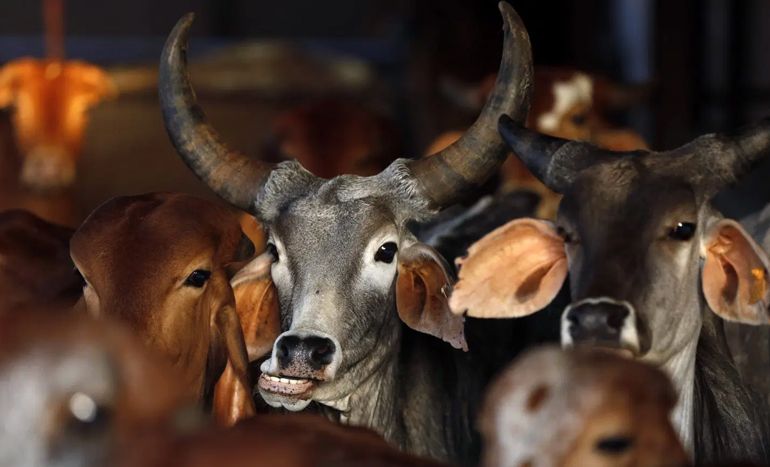PURNIMA GAU POOJA ON – 26 Dec 2023


PURNIMA GAU POOJA ON – 26 Dec 2023
















































India, one of the twelve mega biodiversity countries in the world. We are enriched in a variant of a living organism of the different ecosystems like terrestrial, marine and aquatic.
India is the one country with abundant biodiversity and has all resources in the world. Our ancestors are far more intelligent than other civilizations and our motherland also provided us with blessed soil, climate and seasons. Our ancestors gave more importance and priority to our native cows and worshipped them as goddesses and as a symbol of agriculture and farming. Often called the bull is called a “friend of the farmer”; the cow is fondly called as “maa to the world.”
The native cow is always the best health provider; all the secretion of the cow from milk to cow dung and urine serves as medicine to the humankind to a great extent.
The local breeds have following merits over exotic breeds
1. Better disease resistance than exotic breeds
2. More suitable for low input management system
3. Survive better in the local environment
4. Suitable for draught work
• The Desi breeds have higher immunity to diseases like Harpies, Parjivi, Thanaila, and the like; their susceptibility being only 24% and only about 9% to the Thilairia disease. Moreover, they contract diseases at a level of about 21% lower than the crossbred cows. The susceptibility of the foreign breeds towards diseases is pegged to around.72%.
• The congenial atmosphere in India helps our cows to tolerate temperatures of 0.4 to 50 degrees centigrade, without any lowering of its milk output, while the exotic cows not only wilt at high temperatures but also see a drop in their milk output and contract diseases quickly.
• The Desi domestic cows need no special shelter, and will gladly settle down near the dwellings. At high temperatures, their milk output reduces only by about 5-10%, while their exotic cattle breed counterparts need special shelters in winter when their lactation decreases as low as about 70-80%.
• Greater immunity of the Desi cows to diseases ensures that they remain healthy and do not fall sick regularly, saving their owners the travails of unnecessary expenditure, and recording an eighty to ninety per cent survival. The exotic cows are always susceptible to even the small diseases, bringing down their survival rate in the rural areas to as low as about 50%.
• The Desi cows yield a special nutritional quality of milk containing some special active ingredients that keep diseases at bay, and though the exotic cows yield more milk, they are less nutritious and contain a higher percentage of water.
• In addition, the existence of superior indigenous breeds can provide valuable research inputs for developing superior breeds. It is therefore important that Indigenous breeds of cattle are conserved, developed and proliferated.
Recent Comments